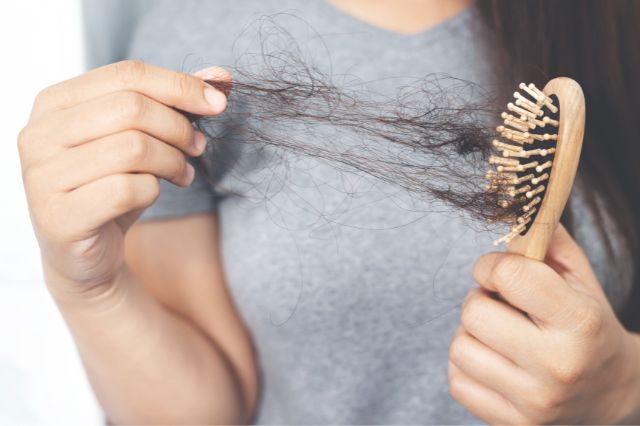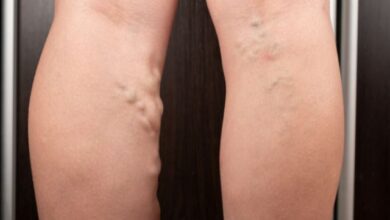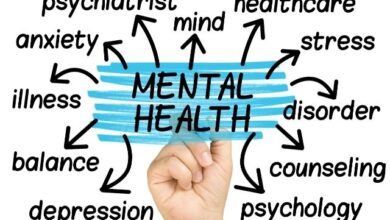Cultural Perspectives on Hair Loss: Lessons from Around the World

Hair, a symbol of strength, beauty, and identity, holds a significant place in many cultures across the world. In the face of hair loss, individuals may experience emotional distress and a perceived loss of identity. But how does the cultural interpretation of hair loss vary globally? What lessons can we learn from these diverse perspectives?
Eastern Perspective: Asia
In Asia, particularly in China and India, hair is considered a symbol of longevity and vitality. Traditional Chinese medicine associates the health of hair with the kidneys and the balance of Yin and Yang in the body. Hair loss might imply an imbalance of this harmony, leading to the employment of traditional practices like acupuncture and herbal remedies for rebalancing the body’s energies.
In Ayurvedic practices in India, hair health is linked to the balance of the three doshas—Vata, Pitta, and Kapha. Hair loss is considered a result of an aggravated Pitta dosha and can be managed with a balanced diet and the use of specific herbs. The eastern perspective underscores the importance of holistic health and balance in maintaining hair health.
Western Perspective: Europe and North America
The Western perspective on hair loss is multifaceted, influenced by various societal, scientific, and individual factors. While hair loss is often attributed to aging and genetics, societal standards of beauty and media portrayal can foster a stigma, particularly for women experiencing hair loss.
However, recent years have seen a movement towards normalizing hair loss, with celebrities openly discussing their experiences and platforms like Instagram fostering communities where individuals can share their stories and find support.
Scientifically, the Western world has made significant strides in understanding and addressing hair loss. Groundbreaking research in genetics and hormonal influences has deepened our understanding of hair loss mechanisms. This research has propelled the development of advanced treatment options, including hair transplantation techniques, FDA-approved medications, and emerging technologies such as low-level laser therapy and micro-needling.
Additionally, a growing preference for organic and natural hair care products reflects the West’s evolving approach to hair health, combining scientific innovation with nature-inspired solutions.
African Perspective
Hair carries profound cultural significance in African societies. It serves as a canvas for self-expression and a testament to cultural heritage, intricately linked with social, political, and historical contexts. Therefore, hair loss in these cultures can have deep emotional implications, often perceived as losing a part of one’s identity.
African hair care practices offer a wealth of wisdom on maintaining hair health. Emphasis is placed on natural ingredients known for their beneficial properties. Shea butter, for instance, is used for its exceptional moisturizing capabilities, helping combat dryness and breakage. Black castor oil, rich in fatty acids, is revered for promoting hair growth and scalp health.
Protective hairstyles, such as braids and twists, are more than a fashion statement—they serve as practical strategies to reduce hair stress, prevent breakage, and promote hair growth.
Middle Eastern Perspective
Hair is a powerful symbol in the Middle East, often associated with beauty, vitality, and social status. Thick, glossy hair is considered a hallmark of good health, making hair loss a distressing experience that can significantly impact self-esteem and social interactions.
Middle Eastern hair care practices lean heavily towards natural, traditional remedies. Oils form the cornerstone of these practices—Argan oil, known as ‘liquid gold,’ is renowned for its hydrating and shine-enhancing properties.
Amla oil, rich in vitamins and minerals, is believed to strengthen hair and prevent graying. Black seed oil is another favorite, used for its purported benefits in promoting hair growth and scalp health. Henna, a plant-based dye, is widely used for its conditioning properties and the rich, natural color it imparts to hair.
These practices highlight the Middle Eastern preference for time-tested, nature-inspired solutions for maintaining hair health.
From Global Insights to Personalized Solutions: Strategies for Healthier Hair Growth
Drawing from these cultural insights, here are some lessons and practical tips:
Embrace Holistic Health: The Asian perspective teaches us that hair health is closely tied to overall health. Maintaining a balanced diet, regular exercise, adequate sleep, and stress management can contribute significantly to healthier hair.
Explore Medical Interventions: Consult a healthcare professional if you experience significant hair loss. They can guide you to suitable treatments, which may include medications, hair transplantation, or low-level laser therapy.
Try Natural Remedies: While they may not have extensive scientific backing, natural remedies are worth exploring. Certain oils, herbs, and dietary changes have been used for centuries in various cultures to promote hair health.
Adopt Protective Hairstyles: Protective hairstyles can reduce hair breakage and promote growth. They are particularly useful for those with naturally curly or coily hair.
Focus on Scalp Care: A healthy scalp is key to healthy hair growth. Regular scalp massages, gentle, sulfate-free shampoos, and the occasional use of exfoliating scalp treatments can help maintain a healthy scalp. If you’re dealing with issues like an itchy scalp, resources like ‘Why does my scalp itch and how can I stop it?‘ can provide valuable insights.
Scientific Perspective on Hair Loss
From a scientific viewpoint, hair loss, or alopecia, can occur due to several reasons, including genetics, hormonal changes, age, stress, and certain health conditions. Androgenetic alopecia, the most common type of hair loss in both men and women, is often inherited and related to hormonal changes.
Scientists continue to explore new treatments for hair loss. Cutting-edge technologies such as platelet-rich plasma (PRP) therapy and stem cell therapy are emerging as promising alternatives. PRP involves using a person’s platelets to stimulate hair growth, while stem cell therapy employs cells to regenerate hair follicles. These developments are a testament to the blend of science and technology in addressing hair loss, offering hope to millions around the globe.
Psychological Impact of Hair Loss
Hair loss isn’t just a physical phenomenon; it also has a profound psychological impact. Hair, being a significant aspect of a person’s identity and self-expression, can influence self-esteem and body image. Hair loss can lead to emotional distress, anxiety, and depression in some individuals.
Societal standards of beauty often place undue emphasis on hair, adding to the psychological burden of hair loss. It’s essential to address the psychological aspects of hair loss, with supportive counseling and therapy playing a crucial role alongside medical interventions.
Understanding these perspectives and the emotional aspects of hair loss can pave the way to comprehensive hair care strategies. For more detailed information on hair health, PureHealth Research provides extensive resources, including a blog post on how long it takes for hair to grow back.
Conclusion: Embracing the Global Tapestry of Hair Health Perspectives
In conclusion, hair loss is a shared human experience that transcends geographical and cultural boundaries. From the eastern philosophies of holistic health to the western advancements in medical interventions, from African protective hairstyles to Middle Eastern natural remedies, the diverse cultural perspectives offer a wealth of insights into hair health. The scientific advances and the acknowledged psychological impact of hair loss further enrich our understanding and guide us towards comprehensive hair care strategies.
The journey to hair health is unique for each individual, influenced by their cultural background, personal beliefs, and specific circumstances. It’s essential to remember that hair loss is nothing to be ashamed of, but a part of our shared human experience. As we navigate this journey, resources like ‘Practical Tips to Grow Your Hair Faster and Healthier‘ can be invaluable guides.
In the quest for healthier hair, it’s crucial to approach hair loss from a holistic perspective, considering not only physical but also psychological well-being. At the end of the day, the lesson we can glean from these global perspectives is that nurturing hair health is inextricably linked with nurturing one’s overall health and well-being.
This journey may have challenges, but remember – you’re not alone. And with the right information, support, and strategies, healthier hair can indeed be within your reach.





